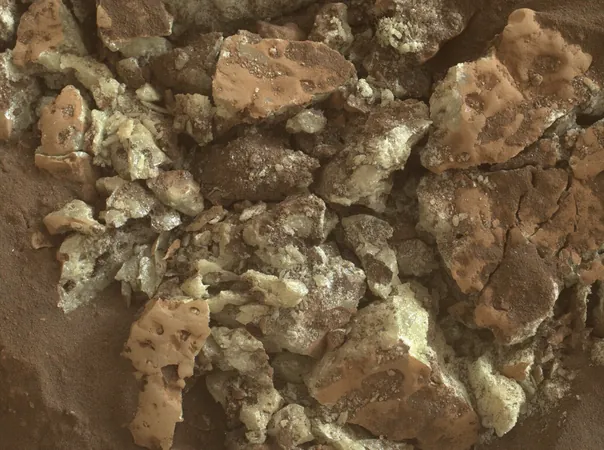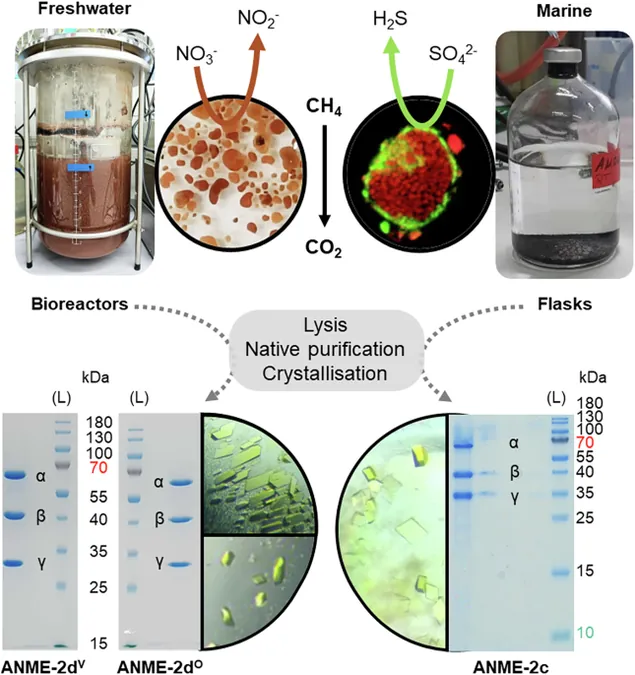
Did Volcanic Activity Make Early Mars Habitable? New Study Suggests Yes!
2025-09-11
Author: Yu
Volcanic Gases: The Key to Mars' Ancient Climate?
Mars has long puzzled scientists regarding its early climate, but a groundbreaking study has emerged, suggesting that volcanic eruptions may have transformed the red planet into a more hospitable environment for life. This revelation comes from researchers at The University of Texas at Austin, published in the journal Science Advances.
Revolutionary Simulations Uncover Hidden Secrets
The team conducted over 40 computer simulations that analyzed the concentrations of carbon, nitrogen, and, notably, sulfur gases emitted from ancient Martian volcanoes. Contrary to earlier models that predicted high levels of sulfur dioxide, the findings reveal a diverse mix of chemically 'reduced' sulfur compounds like hydrogen sulfide and even sulfur hexafluoride, an immensely potent greenhouse gas.
Could Mars Have Supported Life?
Lead researcher Lucia Bellino emphasizes that the presence of these sulfur compounds could have created a hazy, greenhouse-like environment, potentially allowing for the existence of liquid water and the conditions necessary for life. "Such an environment parallels those on Earth where life thrives in hydrothermal systems," Bellino notes.
A Dynamic Sulfur Cycle?
The study also highlights a dynamic sulfur cycle on early Mars, indicating that sulfur was frequently changing forms, with meteorite samples showing high levels of reduced sulfur juxtaposed against oxidized sulfur found on the surface.
NASA's Game-Changing Discovery
Interestingly, just as the research was underway, NASA's Curiosity rover uncovered pure elemental sulfur in a rock—an unprecedented find that bolsters the study's conclusions. Assistant professor Chenguang Sun reacted enthusiastically to the discovery, underscoring its relevance to their research.
Looking Forward: What's Next for Mars Research?
With these insights in hand, the research team plans to further explore how early Martian conditions could have fostered life. Their next steps include investigating the origins of water on Mars and examining whether volcanic activity contributed to potential water reservoirs. They are particularly intrigued by whether these ancient sulfur forms could have provided sustenance for microbial life.
Mars: A Frozen Enigma Still Full of Surprises
Today, Mars is a cold, desolate world with an average temperature of -80 degrees Fahrenheit. However, Bellino and her team are hopeful that their findings can shed light on how warm the planet's early climate might have been and the implications for the existence of microbes in a potentially life-supporting atmosphere.




 Brasil (PT)
Brasil (PT)
 Canada (EN)
Canada (EN)
 Chile (ES)
Chile (ES)
 Česko (CS)
Česko (CS)
 대한민국 (KO)
대한민국 (KO)
 España (ES)
España (ES)
 France (FR)
France (FR)
 Hong Kong (EN)
Hong Kong (EN)
 Italia (IT)
Italia (IT)
 日本 (JA)
日本 (JA)
 Magyarország (HU)
Magyarország (HU)
 Norge (NO)
Norge (NO)
 Polska (PL)
Polska (PL)
 Schweiz (DE)
Schweiz (DE)
 Singapore (EN)
Singapore (EN)
 Sverige (SV)
Sverige (SV)
 Suomi (FI)
Suomi (FI)
 Türkiye (TR)
Türkiye (TR)
 الإمارات العربية المتحدة (AR)
الإمارات العربية المتحدة (AR)